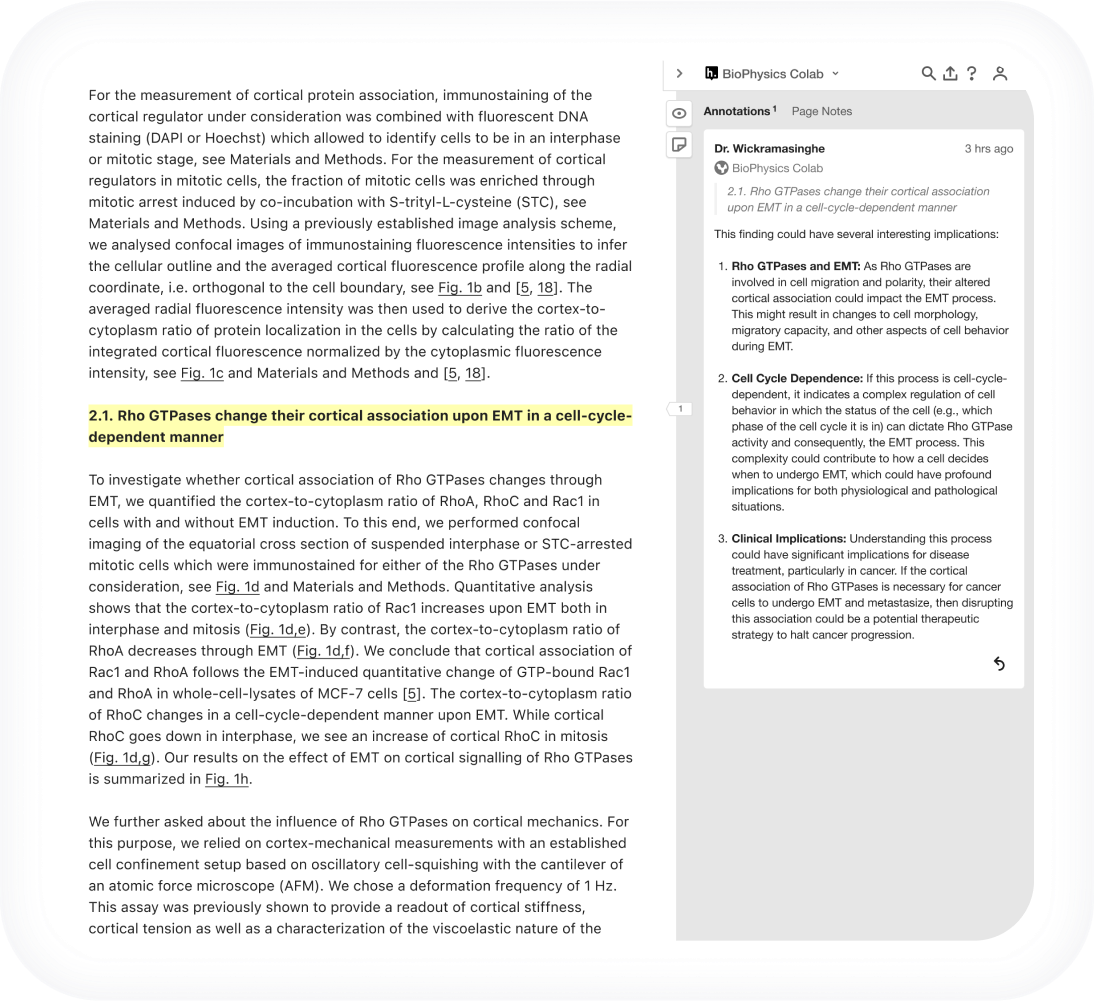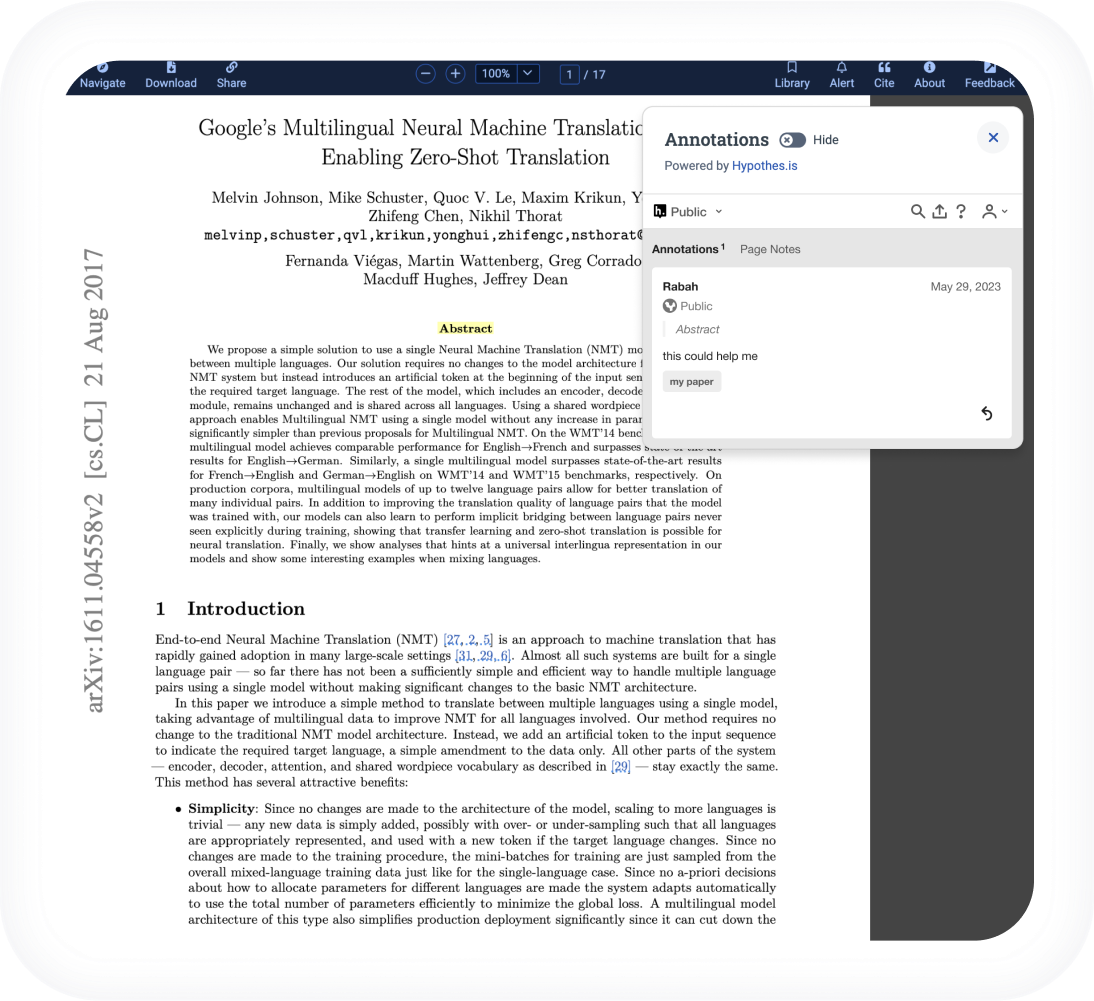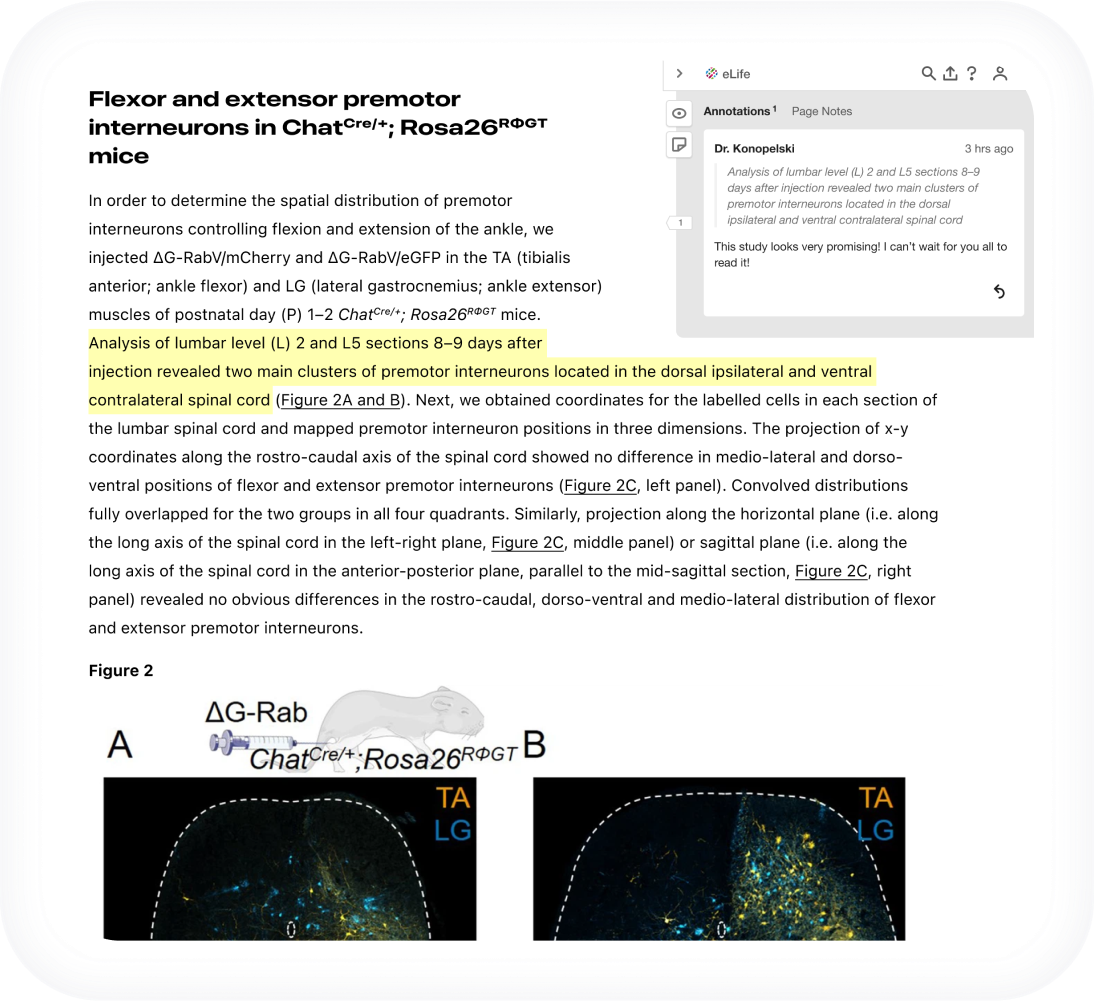Solutions for research
Collaborate like never before with social annotation.
Hypothesis creates new layers of engagement on top of any piece of online research.
Contribute ideas, perspectives, and analysis anywhere.
Social annotation bridges the gap between static information and scholarly discourse. Since Hypothesis is built on web standards, publishers, researchers, and community members can make precise annotations on any online content, without restrictions.

Invite open peer review and discussions.
For the first time, researchers can gather early feedback and engage in open peer review – directly on their content or website. Hypothesis can be used for personal note taking, pre- and post-publication discussion, journal clubs, and discovering new methods of collaboration.

Add value and engagement to articles.
Annotation brings content to life and allows readers to be part of the conversation. With Hypothesis, publishers can enhance articles with author notes, expanded footnotes, links to underlying data, lay summaries, and more.

Customize your community with Publisher Groups.
Upgrade to a Publisher Group to add custom branding to your public or private groups where readers discuss your content. This level also offers advanced moderation by group admins and integrated logins for users.

Leading the open annotation community.
As a mission-based organization, Hypothesis is committed to improving online collaboration through open-sourced, standard-based technology. We were part of the group that led to the W3C Web Annotation Data Model.
Get Started
Try Hypothesis by creating a free personal account and installing the browser extension. For premium publisher features, contact our sales team for a demo or pricing.



